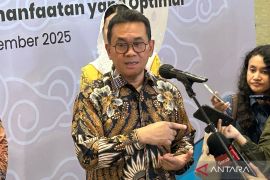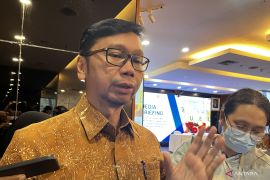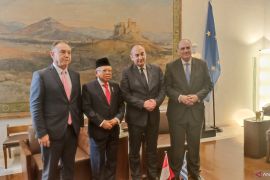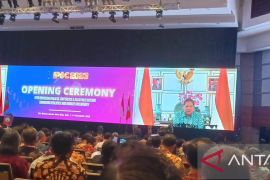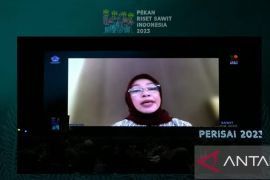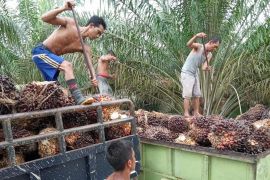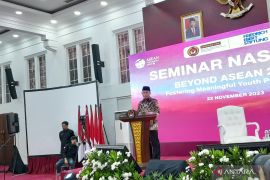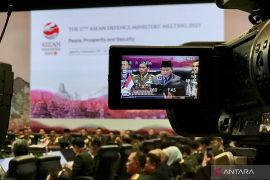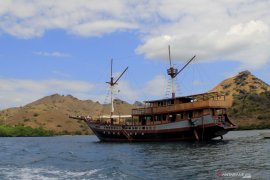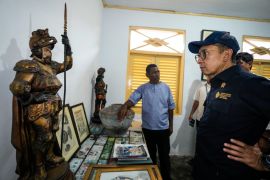The consultative meeting was held in Semarang, Central Java, on Sunday, as part of the series of activities of the 55th ASEAN Economic Ministers' Meeting (AEM) being held on August 17-22 under Indonesia's chairmanship in the ASEAN this year.
"We stated the importance of ensuring balance and upholding objective principles to incorporate the values of fairness and equality into policies," Sambuaga remarked when met while attending the 55th AEM in Semarang on Sunday.
Indonesia's statement was made amid the recent dynamics in its relations with the EU following the latter's resolve to issue the European Union Deforestation-free Regulation (EUDR) and the Carbon Border Adjustment Mechanism (CBAM).
The deputy minister affirmed that related parties should take into account objective principles during the policy formulation process in the hopes of creating a fair trade climate for all.
"A policy should apply to all parties. A policy is not supposed to be beneficial only to certain parties," he pointed out.
He stated that Indonesia is aspiring to forge and foster strategic and reciprocal trade cooperation with all parties, including the EU.
"We will continue to strive to encourage all parties to uphold objective principles that can bring about equality and fairness," he noted.
The ASEAN-EU Economic Ministers' Consultative Meeting was attended by 10 economic ministers of ASEAN, delegates of Timor-Leste as observers, ASEAN-Secretary General Kao Kim Hourn, and representatives of the European Commissioner for Trade.
The meeting was preceded by a meeting between economic ministers and the EU-ASEAN Business Council.
Indonesia has repeatedly expressed its objections to the implementation of the EUDR, as it requires exporting countries, including in ASEAN, to ensure that their products are free from deforestation-related processes before exporting them to countries within the union.
The regulation places special focus on the supervision of the production process of several products, such as livestock, cocoa beans, coffee, palm oil, rubber, soy beans, and timber.
Indonesia views the regulation as a threat to seven of its export commodities: animal husbandry, coffee, palm oil, cocoa beans, soy beans, timber, and rubber. The Coordinating Ministry for Economic Affairs has projected that the EUDR could harm 15-17 million agricultural actors in Indonesia.
Related news: Trade Minister Hasan expects UK to not implement EUDR-like policies
Related news: RI, Malaysia, EU create task force on deforestation regulation
Related news: EU environmental protection policies inconsistent: minister
Translator: Indra Arief, Tegar Nurfitra
Editor: Sri Haryati
Copyright © ANTARA 2023

